A while ago I came across an article about science fiction that caught my attention. The article was a decent argument that I felt had at least some validity, so of course I shared “Our Science Fiction Movies Hate Science Fiction” on Twitter and mentioned I didn’t agree with everything in it. Sadly, 140 characters isn’t nearly enough to start talking about the failings of a fairly long article. So like any opinionated guy on the internet I decided to blog about it to those of you silly enough to give me the page views.
It all started with Elysium.
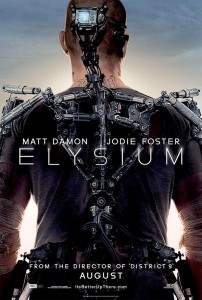 |
| The love story of a man and the scrawny robot that wouldn’t let go |
After seeing Elysium, the author felt that there was a missed opportunity in the film. Despite the obvious metaphor to illegal immigration and the use of technology by both sides of the conflict, the author felt that Elysium ended up being a less sophisticated and less “true” Sci-Fi film that fell into a category of anti-science films that have come from the genre as of late. Citing the violence in particular, the author felt that Elysium’s attempts to become more mainstream somehow tainted the film.
The article went to great lengths to talk about the dumbing down and anti-science tendencies of modern science fiction, comparing it to the old days where the nature of science fiction was different than it was today while implying more modern works were somehow not “true” science fiction. He made it clear that he felt the attempts to make Sci-Fi more accessible to mainstream audiences somehow tainted it.
The problem is, for me, that I think the author completely missed the point of science fiction.
Science Fiction, good science fiction, isn’t about the technology so much as it’s about using the science to erect a mirror for us to look at ourselves in a different light. Making it accessible to people on the whole isn’t corrupting science fiction, it’s following one of the chief mandates. And there is an argument to be had that filling it with action is the worst way to go about doing this, but that wasn’t really the only complaint this author had about Sci-Fi in recent times. No, rather, he showed his hand a bit when he included one of my favorite sci-fi films in a list of those that he felt made science the “villain”: Gattaca.
The story of a man trying to forge his own path during a time when genetic engineering has predestined the lives of everyone in the world – Gattaca isn’t an example of science being the villain. In the world of Gattaca they’ve eliminated most disease, extended the human lifespan, made electric cars the norm and have perfected manned spaceflight to the point of being able to fully explore parts of our solar system that we can only dream of today. In Gattaca the technology of the day has made the world a better place. But, as the rule with all good sci-fi, a defect in human nature, not the science, is what steers people wrong. As Vincent himself says in the movie:
“I belonged to a new underclass, no longer determined by social status or the color of your skin. No, we now have discrimination down to a science.”
To look at a movie like Gattaca and decide that the message was “genetic modification is wrong” is missing the point entirely. No, like all good sci-fi, Gattaca was taking the audience and putting them in a position they hadn’t been in before. Despite being an attractive white male who happened to look like Ethan Hawke, Vincent was, for all intents and purposes, as unlikely to be an astronaut as a black man would have been in the 60s. And Vincent, despite being discouraged by everyone in his life, including his brother, managed to show that he could stand with anyone.
Speaking as a heterosexual white male, I think that’s a lesson we all could benefit from.
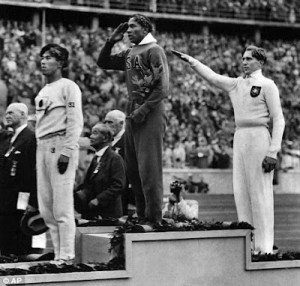 |
| Seen Here: Jesse Owens teaching the same lesson to the last guys to try eugenics |
And having seen the hand tip, I realized that the author was approaching it from the angle that you cannot soften the blow of the science involved in Sci-Fi. In fact, I found the author’s opinion of science fiction was best summed up by his opinion of Star Trek: The Motion Picture. In his eyes the first Star Trek movie was in many ways superior to the rest of the franchise. But as I just argued, and will continue to argue, you don’t have to be cold to be “true” science fiction. Because that is really all that the original Star Trek film has over the others, a cold detachment from the subject where they spend a great deal of time viewing an oddity but having an almost detached interaction with it.
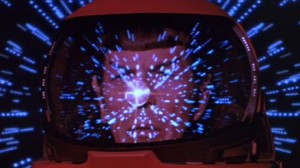 |
| Except, ironically, for the Vulcan |
Would they have to fight V’Ger to make it more interesting? No. But they had to find a way to make the story more relatable to the human condition. A similar premise of a probe with immense power making contact with humanity occurred in Star Trek IV but that movie was much better received due to an effort to frame the conflict and the sci-fi element in something that people could understand. In both instances you have a confused, powerful artificial object coming to the Earth to find the imperfections of humanity have made it difficult to make the contact it wished to make. But by actually shining light on a flaw in human nature, the fourth movie was able to drive a point home where the original has problems keeping the attention of even the staunchest of fans.
So to me, the argument starts to fall apart when being a smart, serious piece of science fiction requires being more analytical and less involved. Because, in a strange way, for all of the talk about how smart the original Star Trek film may have been, I can think of a sci-fi comedy that managed to reflect more on the nature of humanity in the cosmos. Because when you think of science fiction that made people think about their place in the universe, few would really point towards Star Trek: The Motion Picture. But I could easily find several people who would hear the question of “how would we interact with superior beings” and would think of Men in Black, of all things.
And to a great deal of people that may seem like a strange concept at first. We all know that Men in Black was the furthest thing from a “serious” work of sci-fi. But in the end it still achieved something that Star Trek: The Motion Picture couldn’t accomplish. Star Trek may have been very high concept, what with dealing with the nature of life and the idea that our own works may become sentient in the same swing. But to many people that watched it, it couldn’t manage to feel like something worth considering. Men in Black, despite being mostly played for laughs, managed to reach people on a level that Star Trek couldn’t. It showed simple truths about the human condition and reflected on how we would deal with finding out we weren’t alone. Like Gattaca, it managed to focus on the people, rather than the scientific oddities, and made a deeper impact.
To me these two very different examples show that you don’t have to be cold, calculated and detached to be “real” sci-fi. You can find truths in all flavors, whether it includes violence, a dystopia, or even slapstick comedy. Because, in the end…
You really can’t get more true than that.


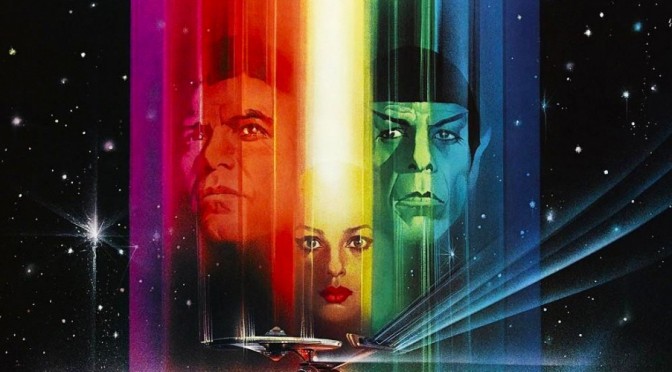
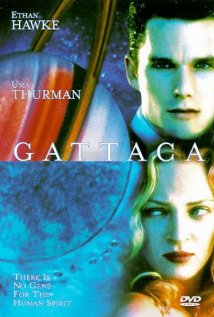
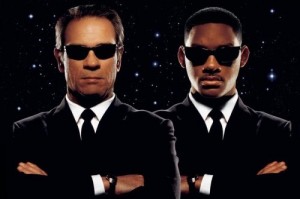





One thought on “Science Fiction as Metaphor”
Comments are closed.